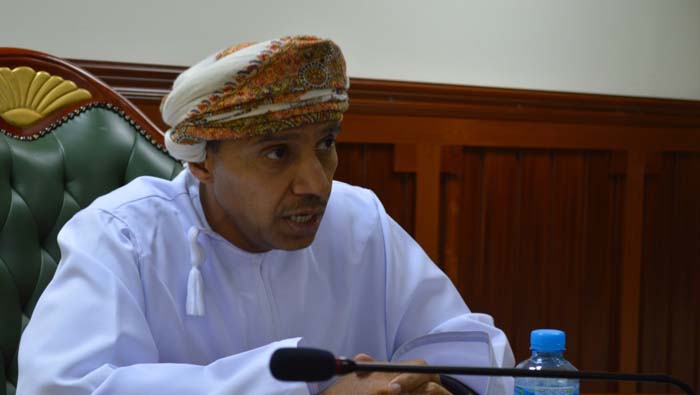
Muscat: Workers who have a grievance in Oman can approach the Human Rights Commission and have their concerns addressed promptly, according to the commission’s General Secretary. More than 200 committees dedicated to workers’ rights have been formed in the Sultanate, drawing on expertise from across government departments.
These ‘syndicates’ are designed to resolve issues over pay and entitlements as quickly as possible, according to Dr. Obaid Al Shaqsi, Secretary-General of the Oman Human Rights Commission (OHRC).
The legal rights of employees will always be secured, noted Dr Al Shaqsi.
Human rights
Dr Al Shaqsi, speaking exclusively to the Times of Oman, said that companies across the various employment sectors in Oman often formed their own committees to deal with cases of human rights violations at the workplace.
These committees offer employees the first line of defence and work closely with representatives from the OHRC, as well as the Ministry of Manpower, the Oman Chamber of Commerce and Industry (OCCI), and trade unions.
“They look after human rights perspectives and are very close to the needs of the people who are working. You do have one union for the entire sector, as well. There are three unions and, of these, the general union encompasses all the syndicates and unions at the same time. They deal with these types of violations and with any shortcomings of companies,” Dr Al Shaqsi said.
“The syndicates relate to a certain field of employment or specialisation. The oil field has its own syndicates, and the construction field has its own syndicates, for example,” he added.
“The OHRC is also in collaboration with them, and we are composed of many members, one of whom comes from the trade union, another from the OCCI, as well as one from the Ministry of Manpower. We look after all of these things, as well.”
The Ministry of Manpower would also listen to any pressing concerns employees have in the context to violations of rights, as would the unions, who often stepped in to safeguard employee rights.
“The syndicates should first solve as many of the concerns that they have among themselves,” explained Al Shaqsi.
“In fact, there are a number of examples in which the syndicates and unions have intervened. If they are unable to do it, though, they can go to the Ministry of Manpower. Just yesterday evening, I received a complaint, and I immediately forwarded that to the Ministry of Manpower and they are really dealing with this,” Dr Al Shaqsi said.
“This was a case of an employee at a particular company who had not been paid for nearly seven months, along with many other employees. So we immediately spoke to the company, and then I escalated this directly to the person concerned at the Ministry of Manpower, and he told me that he, himself, was dealing with it,” he added. “If you don’t have these measures in place, employee morale will drop, productivity will decrease and the motivation to work will not be there.”
The OHRC was formed by Royal Decree in 2008, and was set up nearly two years ago to safeguard the rights of those who lived in Oman, as well as the rights of Omanis overseas. “Human rights deal with individuals, regardless of creed, ethnic group, language or colour, or any other category that human beings choose to identify themselves,” said Al Shaqsi. “It is very important to ensure that these rights are safeguarded, and there are national, regional and international bodies that ensure that these rights are really observed.
“Any country that gives people its rights will be a very safe country, and the level of not just understanding but happiness will also increase, so it is really very important for the economy and political stability of the country to ensure that these rights are granted.”
PM Jabir, Cultural Welfare Secretary of the Indian Social Club Oman, said that these bodies are very important to preserve the rights of workers in the country.
“Many of the complaints we get are about non-payment of wages, not granting leave, non-payment of medical bills, etc. When we approach the employers, they just say it is because they are in a tight spot and cannot afford to honour these commitments. So, it is good that a system for the protection of workers’ rights is in place. We always advise workers not to go on strike, but to approach the authorities the proper way, such as going to the trade unions or the Ministry of Manpower. If there is another system also in place to protect them, that is very good. It is always very important to protect the rights of the workers,” added Jabir.